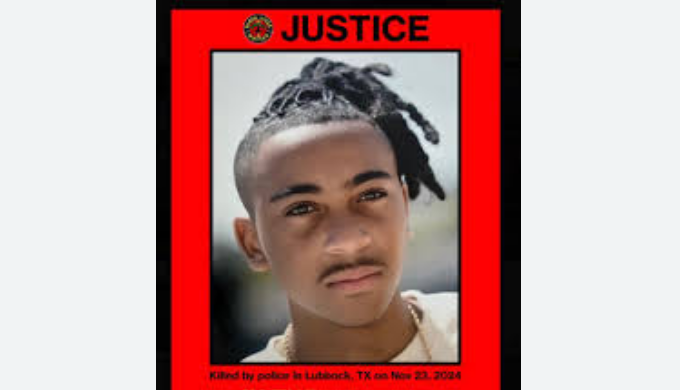Trump. Who’s he fooling? Photo: Gage Skidmore–Flickr.
Last week, Donald Trump asked NFL players protesting police brutality to submit names of incarcerated people they think have been unfairly treated by the justice system, so he may pardon them—as he did for Alice Marie-Johnson, who was lobbied for by Kim Kardashian.
This phony presidential olive branch isn’t a genuine gesture.
Trump’s promise failed to address the primary issue Colin Kaepernick and other Black NFL players were protesting: police brutality against African-Americans and the long list of Black people now buried in their graves because of killer-cops.
Is Trump going to pardon all the innocent dead Black people killed by police?
On Friday, at the White House, Trump touted his idea of NFL players submitting the names of people to be pardoned.
“I’m going to ask them to recommend to me people who were unfairly treated,” Trump said. “You have a lot of people in the NFL in particular, but in sports leagues, they’re not proud enough to stand for our National Anthem. I don’t like that.”
“What I’m going to do is, I’m going to say to them instead of talk … I am going to ask all of those people to recommend to me — because that’s what they’re protesting — people that they think were unfairly treated by the justice system. And I understand that. If the athletes have friends of theirs or people they know about that have been unfairly treated by the system, let me know.”
Once again, Donald Trump is engaging in a diversionary tactic. We should all be clear: this is not an authentic attempt to address the real concerns of Black America, as it regards to police brutality and institutional racism in all arena resulting in: subpar health care delivery; below standard public education; mass incarceration; absence of assets and wealth creation; and, double unemployment rates relative to Whiite people’s.
These issues which are part and parcel of the American system can’t be addressed by selective pardons and theatrics.
So why is Trump really proposing selective pardons? Is it because he really wants to address injustice? Or, is there something else at play here?
In recent weeks, Trump has been giving out pardons like candy, to the likes of: Dinesh D’Souza, Scooter Libby, Jack Johnson and Alice Marie-Johnson. He has also proposed possible pardons for former Democratic Illinois Governor Rod Blagojevich and television personality Martha Stewart. Last year, he pardoned the racist former Arizona Sheriff Joe Arpaio.
D’Souza, who pleaded guilty to one count of making illegal campaign contributions, once attacked President Barack Obama by saying Obama’s political policies were rooted in the philosophy of his father, who D’Souza called a “philandering, inebriated African socialist.” But, D’Souza had no problem accepting a pardon from Trump, a notorious philanderer—who has been accused of sexual assaults by numerous women.
In 2012 D’Souza himself had to resign as President of The King’s College when it was revealed he got engaged while still married to his wife of 20 years.
Scooter Libby, the former advisor to then Vice-President Dick Cheney, was convicted for his role in disclosing the name of CIA agent Valerie Plame, then a covert agent. Plame was apparently outed because administration officials were upset her husband Ambassador Joseph C. Wilson, had criticized the Bush White House for their phony claims that Iraq had gotten yellowcake uranium from the African country of Niger.
We often hear lofty rhetoric about the “rule of law.” But, in both of these cases, as in the case of Sheriff Arpaio, we see a president who decided to pardon people who flagrantly broke the law.
Now, in the posthumous pardoning of Jack Johnson, and in the pardoning of Alice Marie-Johnson, are we seeing a president trying to hide his racism by engaging in a strategic move that his White House could claim shows he isn’t a racist?
Jack Johnson was the world’s first Black heavyweight boxing champion. He enraged many White Americans because of his penchant for pursuing affairs with White women. Johnson was convicted—in June 1913—for violating the Mann Act, also known as the White Slavery Traffic Act, because of these sexual interactions with White women.
Alice Marie-Johnson, a single mother of five, was convicted in 1996 for involvement in a Memphis cocaine trafficking ring. She served 21 years before recently being pardoned.
We can agree with the pardoning of Jack Johnson and Alice Marie-Johnson. But the real reason Trump is doing this has more to do with the pardoning of the likes of D’Souza and Libby.
It is a screaming keep-your-mouth shut signal to former White House officials, who got ensnared in Robert Mueller’s probe, into the Trump campaign’s likely collusion with Russia. How better to mask his true intent than to unleash a spree of generalized pardons?
In the most scandal-plagued White House of our generation, several people connected to this White House, and to Donald Trump, have been arrested and indicted in Mueller’s Russia collusion investigation. Trump’s campaign manager Paul Manafort, former National Security Advisor General Michael Flynn, and former Trump lawyer Michael Cohen have all been caught in the crosshairs of Mueller’s probe.
These pardons are first and foremost a sign to people like Manafort, Flynn and Cohen to stay silent regardless of their legal peril—because Trump will eventually pardon them for being loyal lackeys.
Trump has said he loves the power of the presidential pardon, which he called a “beautiful thing.” He has even made the claim that “I have the absolute right to pardon myself, but why would I do that when I have done nothing wrong?”
Trump doesn’t give a damn about what Black NFL players are protesting about. Friday, he said “that’s what they’re protesting — people that they think were unfairly treated by the justice system. And I understand that.”
Is Trump telling us he doesn’t know police brutality is the main theme of the Black NFL player protests? Obviously, players are also protesting racial injustice in the justice system. But the contact of Black America with the justice system starts with police.
Trump’s decision to ignore the issue of police brutality isn’t because he doesn’t understand what players are protesting. He clearly does. So, why didn’t he say anything about racial policing?
Moreover, without apparently knowing it, Trump revealed Friday he has been disingenuous all these months railing about NFL players disrespecting the flag, military and national anthem. In his own words, Trump acknowledged he knew players were protesting Blacks being “unfairly treated by the justice system.”
So why was he lying and attacking players for supposedly disrespecting the flag and calling them “sons of bitches”?
We cannot expect an unrepentant racist like Trump to be sincere when it comes to fighting racism. Trump’s dossier of discrimination against African-Americans is long. We know he was sued by the Justice Department, in 1973 and 1978, for housing discrimination—when he directed subordinates to mark C on the housing applications of African-Americans so they could be steered away from prime housing.
The 1989 Central Park Five case fiasco is instructive in illustrating how Trump uses racism to publicize himself. As five teenage boys were being wrongly accused of raping a White woman by police and prosecutors, Trump purchased full-page ads in all four major newspapers in New York City demanding the reinstatement of the death penalty. Even after DNA evidence exonerated them and New York City settled for over $40 million with the wrongly-convicted, Trump continued to disparage these innocent men.
In a 1989 interview with Bryant Gumbel, Trump made the deceitful claim that “A well-educated Black has a tremendous advantage over a well-educated White in terms of the job market.”
The Black unemployment rates–double that of Whites since the data started being collected over 60 years ago — demolishes this lie.
According to author John O’Donnell, a onetime president of Trump’s Plaza Hotel and Casino, Trump once complained about a Black accountant saying “Black guys counting my money! I hate it. The only kind of people I want counting my money are short guys wearing yarmulkes.” O’Donnell alleged that Trump said, “laziness is a trait in Blacks.”
Moreover, Donald Trump won the White House because he championed the racist “Birther” lie against President Barack Obama, claiming he was born in Kenya.
Does Trump really believe Black America expects him to rectify wrongs in the racist justice system? These wrongs can’t be corrected without changing corrupt cop culture and punishing those who kill innocent Blacks with impunity. The injustices in the justice system start with police interactions.
Donald Trump, like our other so-called leaders in Congress, refuses to demand accountability of cops who brutalize and kill Black people.
Pardoning a select few people won’t stop the Black bloodletting—or, the funerals.








